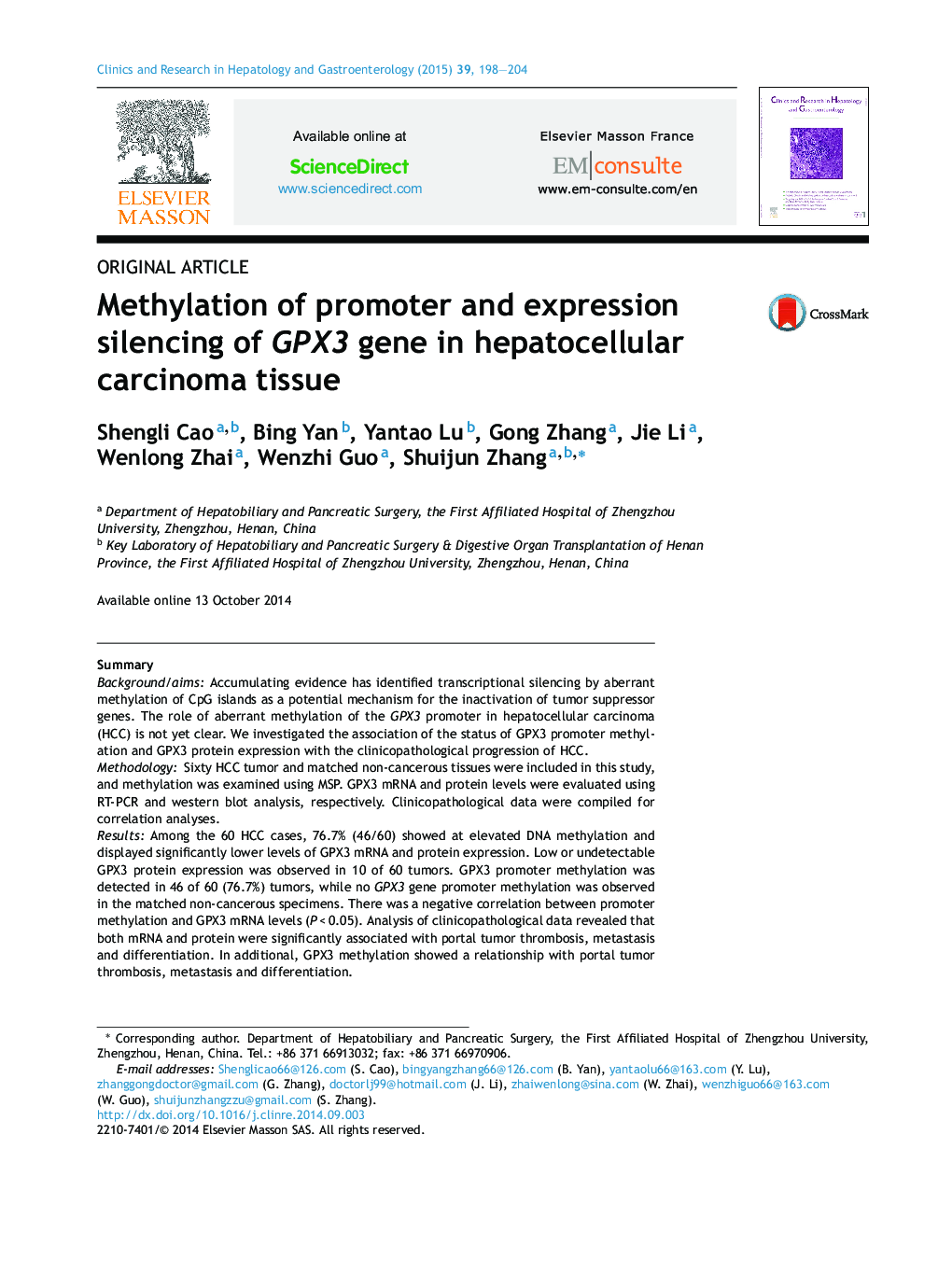| Article ID | Journal | Published Year | Pages | File Type |
|---|---|---|---|---|
| 3286169 | Clinics and Research in Hepatology and Gastroenterology | 2015 | 7 Pages |
SummaryBackground/aimsAccumulating evidence has identified transcriptional silencing by aberrant methylation of CpG islands as a potential mechanism for the inactivation of tumor suppressor genes. The role of aberrant methylation of the GPX3 promoter in hepatocellular carcinoma (HCC) is not yet clear. We investigated the association of the status of GPX3 promoter methylation and GPX3 protein expression with the clinicopathological progression of HCC.MethodologySixty HCC tumor and matched non-cancerous tissues were included in this study, and methylation was examined using MSP. GPX3 mRNA and protein levels were evaluated using RT-PCR and western blot analysis, respectively. Clinicopathological data were compiled for correlation analyses.ResultsAmong the 60 HCC cases, 76.7% (46/60) showed at elevated DNA methylation and displayed significantly lower levels of GPX3 mRNA and protein expression. Low or undetectable GPX3 protein expression was observed in 10 of 60 tumors. GPX3 promoter methylation was detected in 46 of 60 (76.7%) tumors, while no GPX3 gene promoter methylation was observed in the matched non-cancerous specimens. There was a negative correlation between promoter methylation and GPX3 mRNA levels (P < 0.05). Analysis of clinicopathological data revealed that both mRNA and protein were significantly associated with portal tumor thrombosis, metastasis and differentiation. In additional, GPX3 methylation showed a relationship with portal tumor thrombosis, metastasis and differentiation.ConclusionsOur results suggest that promoter methylation may be a mechanism for inactivation of GPX3, possibly leading to subsequent carcinogenesis and progression of HCC.
